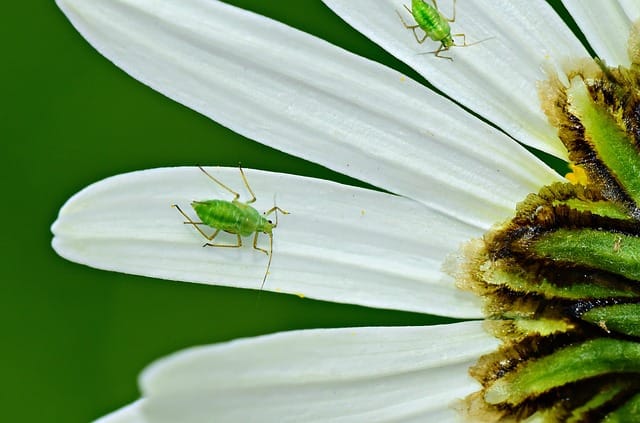Fighting gardening pests: Aphids
Aphids are small, soft-bodied insects that are commonly found in gardens and can wreak havoc on your plants

In this article:
- Introduction to Aphids
- Identification of Aphids
- Life Cycle of Aphids
- Common Garden Plants Affected by Aphids
- Signs and Symptoms of Aphid Infestation
- Damage Caused by Aphids
- Natural and Organic Methods to Control Aphids
- Introducing Beneficial Insects to Combat Aphids
- Chemical Control of Aphids: Pros and Cons
- Preventive Measures to Ward off Aphid Infestations
- Frequently Asked Questions about Aphids
- Conclusion and Final Tips for Managing Aphids
Introduction to Aphids
Aphids are small, soft-bodied insects that are commonly found in gardens and can wreak havoc on your plants. They reproduce quickly and can quickly establish large populations if left unchecked. It is important to learn how to identify and control aphids to protect your garden and plants.
Identification of Aphids
Aphids can vary in size and color, but most are small, pear-shaped insects that range from green, yellow, brown, or black. They have long antennae and feed by sucking sap from plants.
Life Cycle of Aphids
Aphids have a complex life cycle which includes both sexual and asexual reproduction. They can produce many generations in a short period of time, making them difficult to control. Understanding this life cycle is essential for effective pest management.
Common Garden Plants Affected by Aphids
Aphids can infest a wide variety of plants including roses, tomatoes, peppers, lettuce, and many others. It is important to be aware of the plants that are most susceptible to aphid infestations.
Signs and Symptoms of Aphid Infestation
Look out for sticky residue on plants, distorted or curling leaves, stunted growth, and the presence of ants on your plants. These are all signs of a possible aphid infestation that requires immediate attention.
Damage Caused by Aphids
Aphids can cause significant damage to plants by draining their sap and spreading diseases. This can result in weakened plants, reduced yields, and even plant death in severe cases.
Natural and Organic Methods to Control Aphids
There are many natural and organic methods to control aphid populations in your garden. These include introducing beneficial insects, such as ladybugs, lacewings, and parasitic wasps, using homemade insecticidal soap sprays, and practicing companion planting.
Introducing Beneficial Insects to Combat Aphids
Beneficial insects can play a crucial role in controlling aphids. Ladybugs, for example, are voracious predators of aphids and their larvae. Learn how to attract and promote these helpful insects in your garden.
Chemical Control of Aphids: Pros and Cons
Chemical control should be a last resort, as it can have negative impacts on the environment and beneficial insects. However, there are situations where it may be necessary. Understand the pros and cons of using chemical pesticides to control aphids.
Preventive Measures to Ward off Aphid Infestations
Prevention is key when it comes to managing aphids. Implementing proper garden sanitation, using row covers, regularly inspecting your plants, and promoting a healthy garden ecosystem are all effective ways to prevent aphid infestations.
Frequently Asked Questions about Aphids
Here are some common questions people have about aphids, along with their answers:
- How do I differentiate aphids from other garden pests?
- Can aphids be beneficial to my garden?
- Are aphids harmful to humans?
Conclusion and Final Tips for Managing Aphids
In conclusion, aphids can be a troublesome pest in any garden. By being proactive in identifying and controlling them, you can protect your plants and maintain a healthy garden. Implement a combination of natural and organic methods, introduce beneficial insects, and only resort to chemical control if necessary. With proper prevention and management strategies, you can keep aphids at bay and enjoy a thriving garden.
